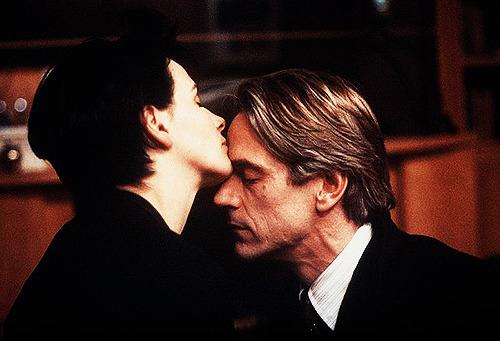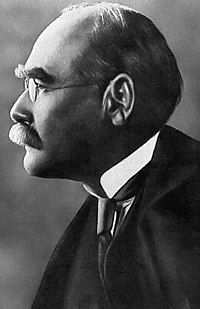The Hound of the Baskervilles
 Tuesday, April 8, 2008 at 00:36
Tuesday, April 8, 2008 at 00:36  An egregious mistake was rectified with the publication of this novella, one of the finest in the English language. In it returned the most renowned of all fictional detectives, and with him, we are told, thousands of readers. All to a man were relieved that one of their constants in life was back from, well, the dead. Yet if you are familiar with the arc of this story you know that Conan Doyle was more than a little reluctant to resurrect his immortal. This hesitation was caused in part by his wish to become more than a “writer of detective stories,” an honorable calling, doubtless, although not literature’s highest. In the felicitous creation of Holmes and Watson, Conan Doyle ensured that readers would celebrate the quadricentennial of his birth as they once feted the centennial. Sure enough, Conan Doyle forayed into other fields, including some books on spirituality that I will probably never bring myself to read, and we can definitely respect his literary ambitions. But his genius lay in his development of an art form that seems lesser but was actually superior. Superior because it had no peers, and perhaps its most glorious manifestation remains the tale of the evil hell–hound on the moors.
An egregious mistake was rectified with the publication of this novella, one of the finest in the English language. In it returned the most renowned of all fictional detectives, and with him, we are told, thousands of readers. All to a man were relieved that one of their constants in life was back from, well, the dead. Yet if you are familiar with the arc of this story you know that Conan Doyle was more than a little reluctant to resurrect his immortal. This hesitation was caused in part by his wish to become more than a “writer of detective stories,” an honorable calling, doubtless, although not literature’s highest. In the felicitous creation of Holmes and Watson, Conan Doyle ensured that readers would celebrate the quadricentennial of his birth as they once feted the centennial. Sure enough, Conan Doyle forayed into other fields, including some books on spirituality that I will probably never bring myself to read, and we can definitely respect his literary ambitions. But his genius lay in his development of an art form that seems lesser but was actually superior. Superior because it had no peers, and perhaps its most glorious manifestation remains the tale of the evil hell–hound on the moors.The setup will be old hat to mystery buffs: an aged millionaire dies under mysterious circumstances and his young heir pays no heed to warnings about a family curse. To make matters even worse, the heir is an American and untrained in the ways of his British ancestors, rendering him even less suitable to handle the situation, the mansion, and, of course, the beast that allegedly scared his relative to death. Since the family Baskerville is a known commodity, Holmes monitors the developments. He is initially delighted to be consulted on the matter by Dr. Mortimer, the family doctor of the recently deceased Charles Baskerville. Holmes’s enthusiasm wanes, however, when Mortimer argues for the hound’s supernatural origin, to which Holmes suggests that he might make better use of a priest than of the residents of 221B. Nevertheless, a personal meeting with the heir, Henry Baskerville, and another series of what could not possibly be coincidences motivate Holmes to venture out into the granite upland of Dartmoor. There he meets a few more characters who will be pieces in the puzzle and begins his investigation in typical Holmesian fashion by retreating, masquerading, and for a long time leaving Watson as befuddled and uninformed as his readers.
Holmes’s other three novellas share one fatal flaw that escapes The Hound of the Baskervilles: a wholly unnecessary back story that, while thorough in its explanation, casts the meat of the novel in a rather superficial light. The most unfortunate of these devices can be found in this novella written after The Hound of the Baskervilles, but inferior in every way imaginable, although the methodology of the crime itself is ingenious. But the tale of the padfoot might also be the best Sherlock Holmes tale by virtue of its freshness and observation of the fundamental rules of suspense, character development, and plot. One occasionally gets the feeling in other stories that many of the barbs and details are throwaways for the sake of atmosphere and propriety (this later adventure is one example of too much talk, not enough snooping). Nothing of the kind here. We get instead an allegory, which when done garishly is one of the lowest forms of literature, and when done with great artistry sublimates into the stratosphere of the magnificent. The fact that we are uncertain about the nature of the beast, or even of its ambitions (Dr. Mortimer relates the gory legend with great relish), whether it be flesh at all or simply a maudlin ruse in animal form, makes the book a late cloudy afternoon one–sitting classic. And let us not forget the moor, because after this experience, you never will.





